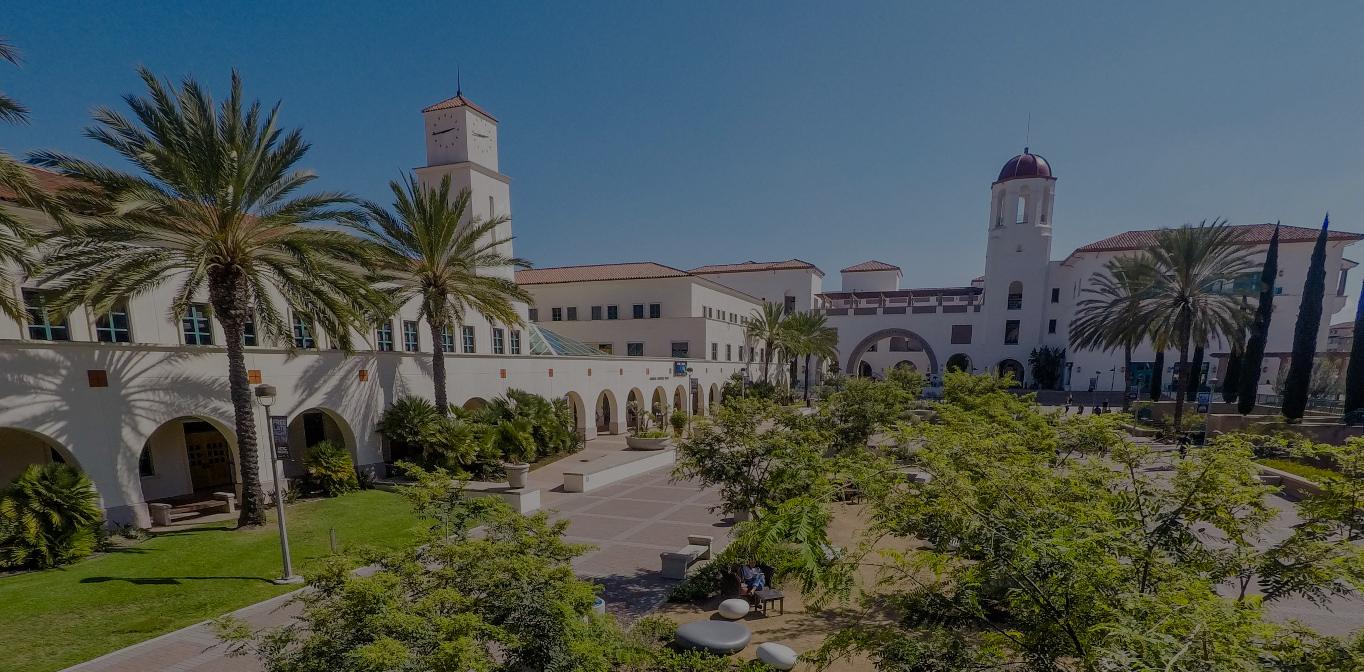Meet the President
Meet The President
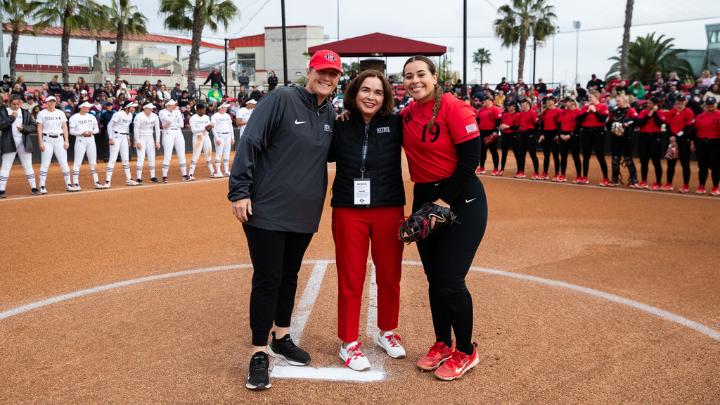
Dr. Adela de la Torre became the ninth president of San Diego State University in 2018, following a distinguished career of more than three decades as an accomplished economist, public-health researcher and higher-education leader in California and Arizona. Under her leadership, SDSU has consistently ranked among the top institutions in the nation for applications received and has set new records in enrollment and national rankings, now serving nearly 40,000 students each year. It also has reached new heights and broken records with its athletic success, regional expansion, and economic and community impact.
Global Perspective, Greater Impact
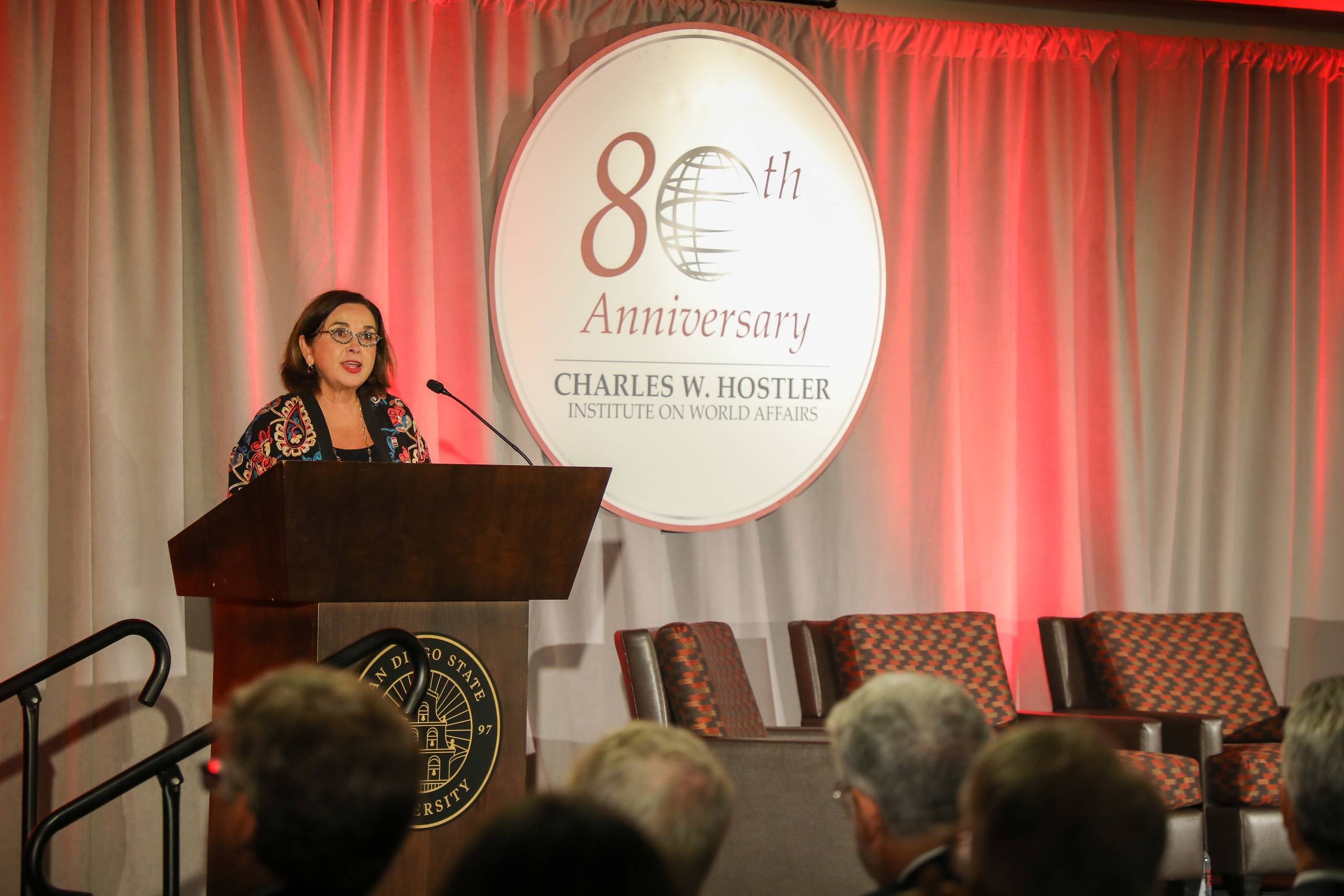
President de la Torre brought to SDSU a global perspective, and a mission of building on the university’s unique leadership role in bridging the San Diego region’s and world’s communities. In late 2020, under President de la Torre’s charge, SDSU launched a five-year strategic plan called “We Rise We Defy.” Her student-centric strategy focuses on driving opportunity, access, support and success for all students, which has led to unprecedented measures of achievement. Along with soaring graduation rates, SDSU has been recognized nationally for the career-readiness and social mobility of its graduates. With more than 500,000 living alumni, SDSU received more than $650 million in philanthropic giving in the last five years.
Rise in Research and Academic Excellence
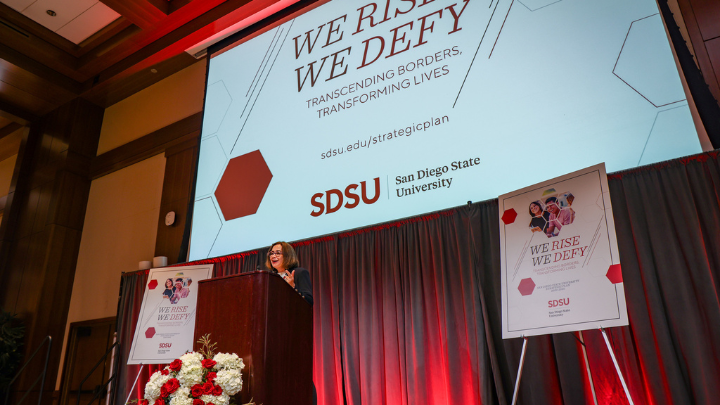
Under President de la Torre's leadership, the breadth, depth and diversity of curriculum and academic programs at SDSU have greatly expanded at its locations in San Diego; Imperial Valley; Mission Valley; the Republic of Georgia; Oaxaca, Mexico; and its dozens of other onsite and online global programs. She has driven the development of new curriculum and degree programs at both the undergraduate and graduate levels, and was a champion of 2024 legislation in California that updated the state’s 1960 Master Plan for Higher Education by expanding the ability to offer independent doctoral degrees and post-doctoral research opportunities at SDSU and other California State University campuses.
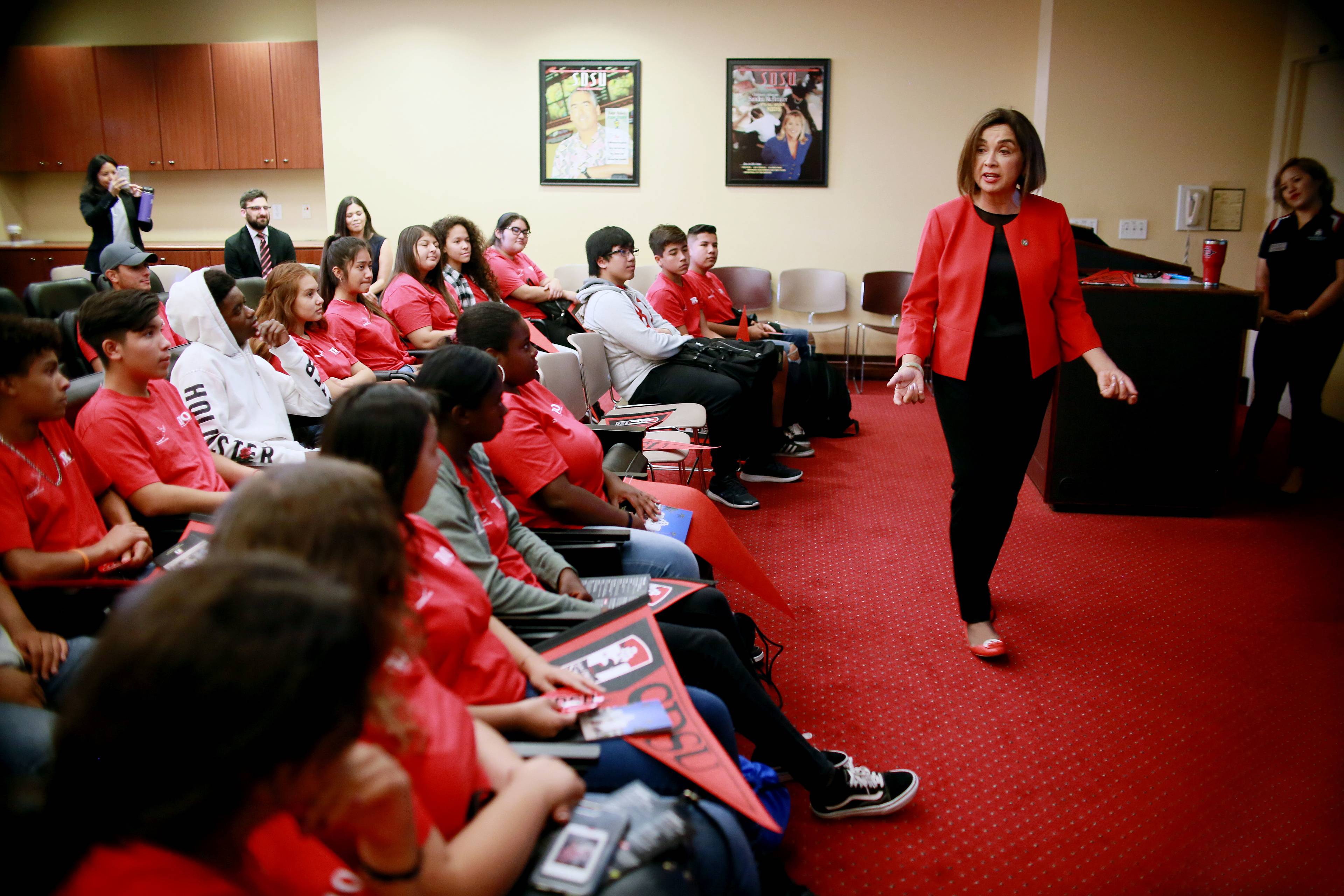
A strong advocate for the campus-wide positive impact of academic research, de la Torre has overseen a 65% increase in external research funding at SDSU in the past three years alone. In 2025, SDSU furthered its ascendance, reaching de la Torre’s strategic goal of earning “R1” status in the Carnegie Classifications, reserved for less than 5% of American universities with the highest levels of research activity. That activity reaches across SDSU’s colleges and disciplines, spanning the arts and sciences and driving innovation in areas including community health and disease prevention, electric vehicle technology and environmental stewardship, cybersecurity and national security, homelessness and more.
University Expansion and Regional Impact
One of President de la Torre’s mission-critical strategic priorities is the ongoing development of SDSU Mission Valley. Along with the new Snapdragon Stadium, which opened in September 2022, SDSU kept another promise it made to the San Diego community when it opened a 34-acre river park on the site in early 2024. The next phase of development at SDSU Mission Valley includes the Innovation District, a modern incubator with up to 1.6 million square feet of campus, technology and commercial space. The mixed-use site also will include residential and retail development. Once completed, SDSU Mission Valley will add approximately $3 billion to the university’s existing $5.5 billion annual impact on the local economy. It will support more than 17,000 jobs and, importantly, will allow SDSU to increase enrollment by up to 15,000 new students.
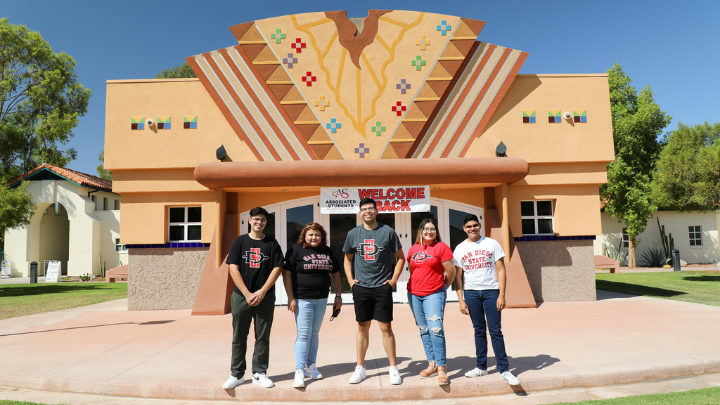
Meanwhile, also in early 2024, the university held a groundbreaking ceremony for a new $80 million STEM education and research facility at SDSU Imperial Valley. Funded by the California Legislature, the facility in California’s “Lithium Valley” will prepare students to benefit from the major economic development and professional opportunities created by sustainable extraction of the element, which is vital to renewable-energy technology. SDSU Imperial Valley also recently launched a four-year liberal studies degree, a Bachelor of Arts in mathematics degree, and a Master of Science degree in Homeland Security.
In 2025, addressing a regional housing crisis, SDSU launched construction of student housing for an additional 4,500 people across both San Diego and Imperial Counties.
Before SDSU
Born and raised in the San Francisco Bay Area, President de la Torre is the granddaughter of Mexican immigrants and daughter of a single mother who taught in public schools for 40 years. She holds a deep appreciation for cultural traditions, the importance of family and hard work, and for the transformative power of education.
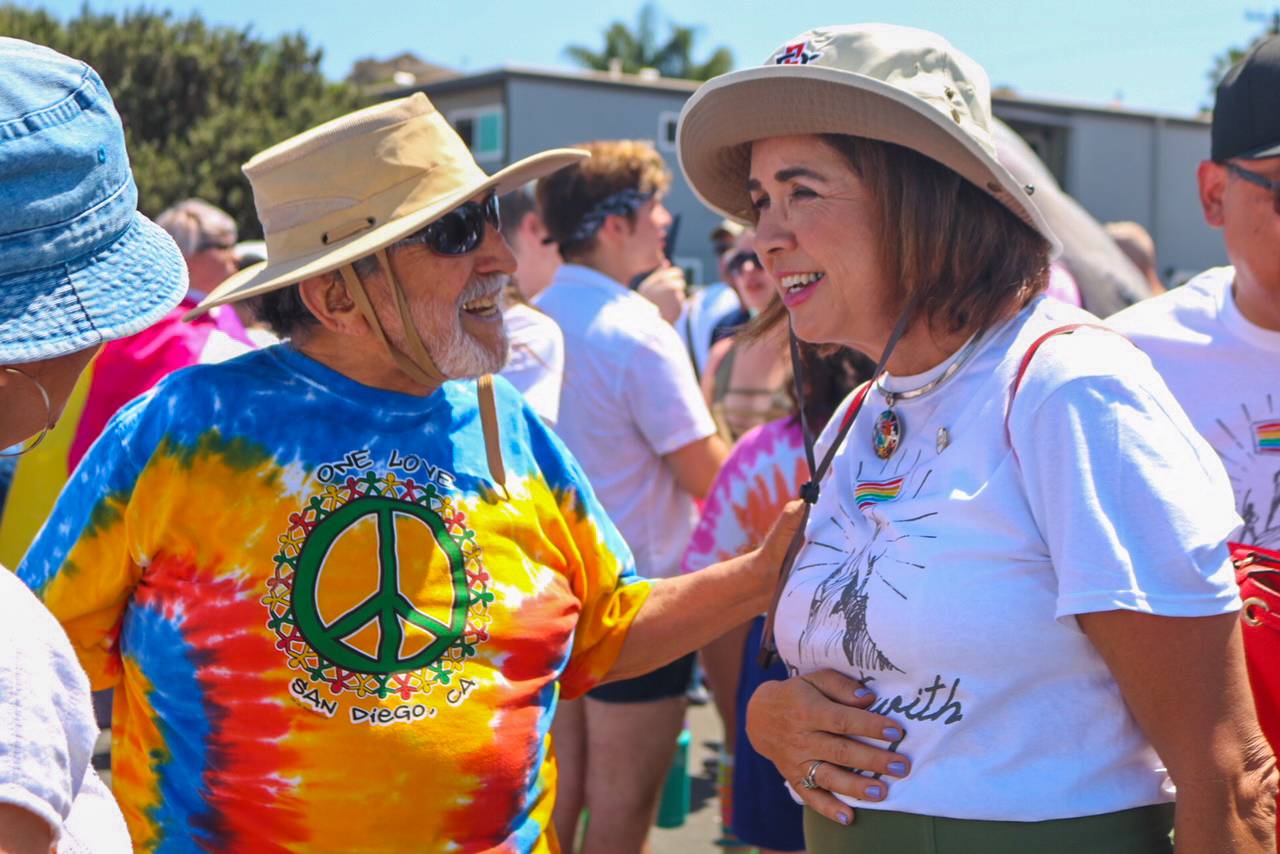
She earned her bachelor’s degree in the political economy of natural resources from the University of California, Berkeley, where she also earned master’s and Ph.D. degrees in Agricultural and Resource Economics.
Before her arrival at SDSU, President de la Torre was vice chancellor for Student Affairs and Campus Diversity at University of California, Davis. Prior to that she served for 14 years as director for the UC Davis Center for Transnational Health, chair of the UC Davis Chicana/Chicano Studies Department, and director of the Hispanic Center of Excellence in the College of Medicine at the University of Arizona, where she was also director of the Mexican American Studies and Research Center. Earlier in her career she taught as a professor at California State University, Long Beach; the University of Arizona; and UC Davis, where she earned the title of Distinguished Professor.

